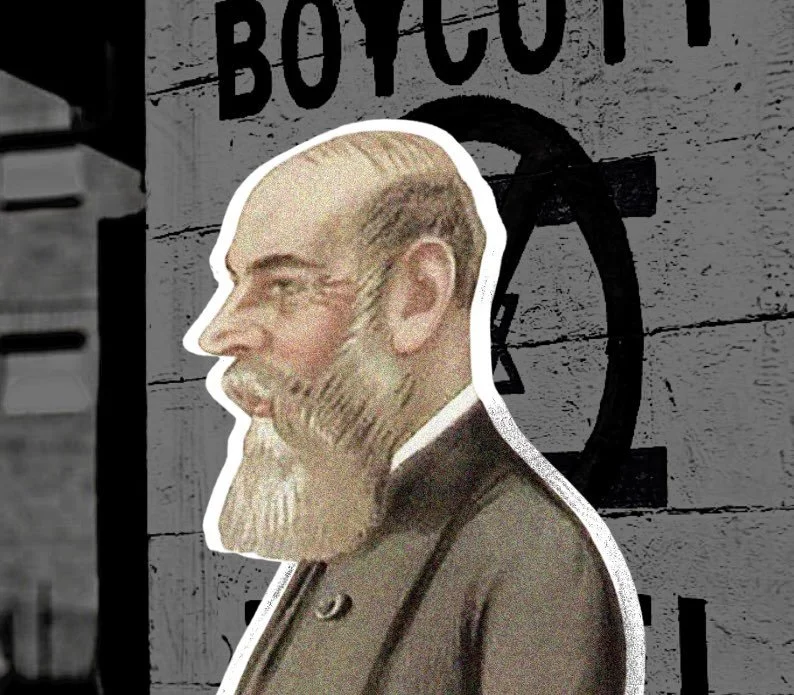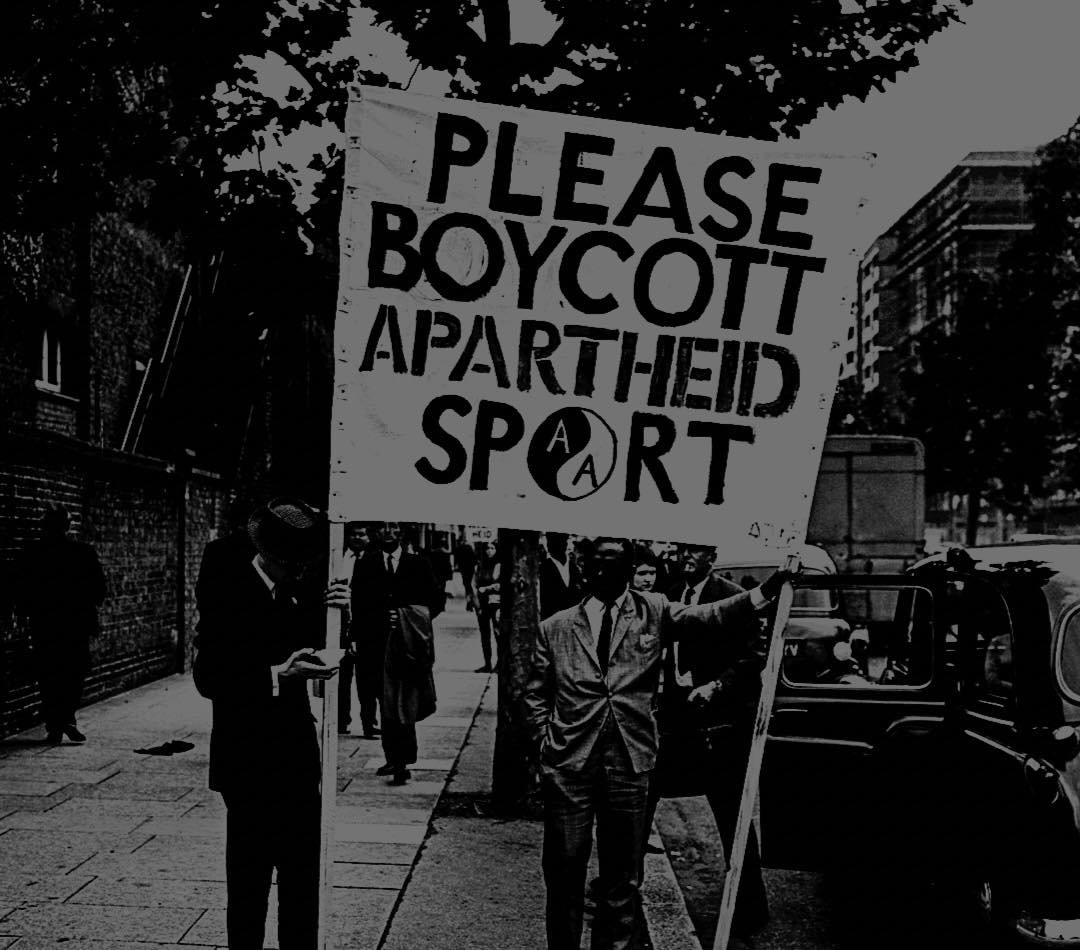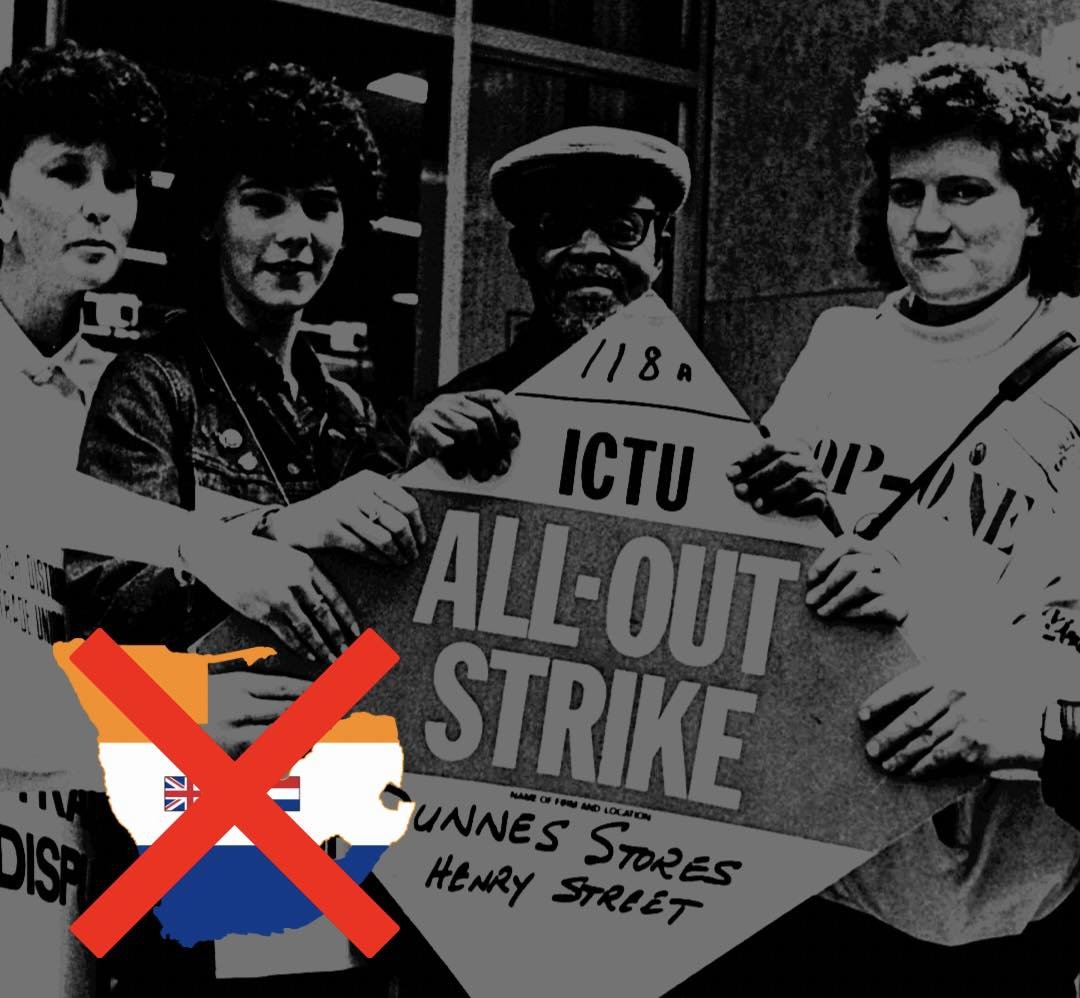Did You Know That The Term ‘Boycott’ Originated In Ireland?
A ruthless English land agent by the name of Charles Cunningham Boycott inspired the term ‘Boycott’ due to his heartless campaign of evicting people from their homes which provoked the local community of Ballinrobe in County Mayo to take action in the form of social and economic isolation against him – actions which we now call ‘Boycotting’.
In the early 1850s, after a career in the British Army, Boycott settled in Ireland, soon taking up the role of a land agent. Boycott worked for a huge landlord named Lord Erne, who lived a lavish life funded by the exorbitant rents he charged his tenants who were spread across 40,386 acres of land in several different counties.
Boycott ensured that each tenant paid the rent Lord Erne demanded of them, and if the tenant could not afford these extortionate rents Boycott ruthlessly evicted them out into the cold - a sight that is still depressingly familiar in many Irish cities, towns and villages.
In addition to this, Boycott imposed heavy fines on tenants who refused to abide by the absurd restrictions he imposed on them, an example of this being ‘failure’ to close gates.
Charles Boycott.
The Land League, which was very strong in County Mayo at the time, rose up to challenge unscrupulous land agents like Boycott, and began a campaign of ostracisation against the Englishman which proved extremely successful.
In one event, Boycott obtained eviction notices for eleven tenants, when the fourth notice was delivered to a Mrs Fitzmorris she began waving a red flag in an attempt to alert her neighbours. The women of the area rallied to her aid and forced the Process Server who was delivering the notices, as well as the group of RIC men escorting him, to retreat.
As news of this incident spread around Ballinrobe, locals hurried down to Lough Mask House, the home of Charles Boycott, and encouraged those working for him to leave their employment immediately.
Not long after this all his employees left, even those running businesses in the town refused to provide any services to Boycott. At one point his nephew was forced to take up the role of personal postman to Boycott as nobody would deliver his post to him.
Charles Boycott wrote to the British Press stating “I can get no workmen to do anything, and my ruin is openly avowed as the object of the Land League unless I throw up everything and leave the country.”
To save Boycott’s crops, which were failing due to his former employees declining to work for him, fifty members of the Orange Order based in Ulster travelled to County Mayo, along with a band of armed men and over 1,000 members of the RIC to protect them. Ironically, this whole charade cost around £10,000 but only saved around £500 worth of crops.
Finally, on the 27th of November 1880, Boycott and his family left Lough Mask. No driver could be found for the carriage Boycott hired so an army ambulance was forced to drive them to the train station. The hotel Boycott and his family booked in Dublin were told that they would be ‘boycotted’ if they allowed them to stay any longer, so he and his family had to cut short their stay and hurriedly boarded a boat to England soon after.
‘Boycotting’ showed the power of mass political campaigning which influenced Republicans to embrace social and political activism, helping to channel these forces for change into direct conflict with landlords - the representatives of the English capitalist system in Ireland.
Fast forward 104 years after Charless Boycott was run out of Ireland and we see another momentous episode of people power winning out against tyranny.
Anti-Apartheid campaigners in the 1960s.
On the 19th of July 1984, Mary Manning, a shop worker in the Henry Street branch of Dunnes Stores in Dublin, refused to handle the sale of a grapefruit from Apartheid South Africa.
Manning’s union, the Irish Distributive and Administrative Union, had issued directions to its members not to handle produce originating from Apartheid South Africa due to the racist policies in place by the white majority government there.
When Manning and shop steward Karen Gearon continued to refuse to handle Apartheid South African goods, they were suspended and along with ten of their fellow IDATU members working in the store, they went on strike.
After 33 months on strike - 33 months of being shunned by some of their fellow ‘workers’, suffering harassment from the combined forces of the Gardaí and the Catholic Church, and having to subsist on a measly strike pay of £21 a week - the workers won, despite the overwhelming odds against them.
Supported by a sympathetic Irish public, along with the international Anti-Apartheid Movement, the workers gave hope to the peoples of South Africa, with their heroic fight being recognised by Archbishop Desmond Tutu and freedom fighter Nelson Mandela.
Boycotting has always been a powerful tool in the fight against imperialism in Ireland - we are well aware of how it can be used to combat imperialism all over the world. The people of Ireland will always stand with the people of Palestine, now more than ever, as they suffer the genocidal campaign of the Apartheid state of Israel - all sanctioned and supported by the USA, the EU and Britain.
Dunnes Stores worker on strike.
As with the Dunnes Stores’ workers taking a stand against racism by refusing to handle goods from Apartheid South Africa, WE ALL must refuse to buy and handle goods originating from the Apartheid state of Israel, along with goods from those companies who support the ongoing genocide in Palestine.
The act of boycotting not only puts political pressure on those targeted, it also heaps economic and social pressure on them too.
But in order to do this effectively we must challenge the current anti-union legislation brought into place by the Twenty-Six County government in 1990, legislation which outlaws solidarity strikes similar to the ones the Dunnes Stores workers undertook.
Just as the residents of Lough Mask refused to deliver goods and provide services to Charles Boycott in 1880, and just as the Dunnes Stores workers refused to handle goods from Apartheid South Africa from 1984 to 1987, WE ALL must now refuse to facilitate the brutal genocide of the Palestinian people and the theft of their land by the Apartheid state of Israel.




